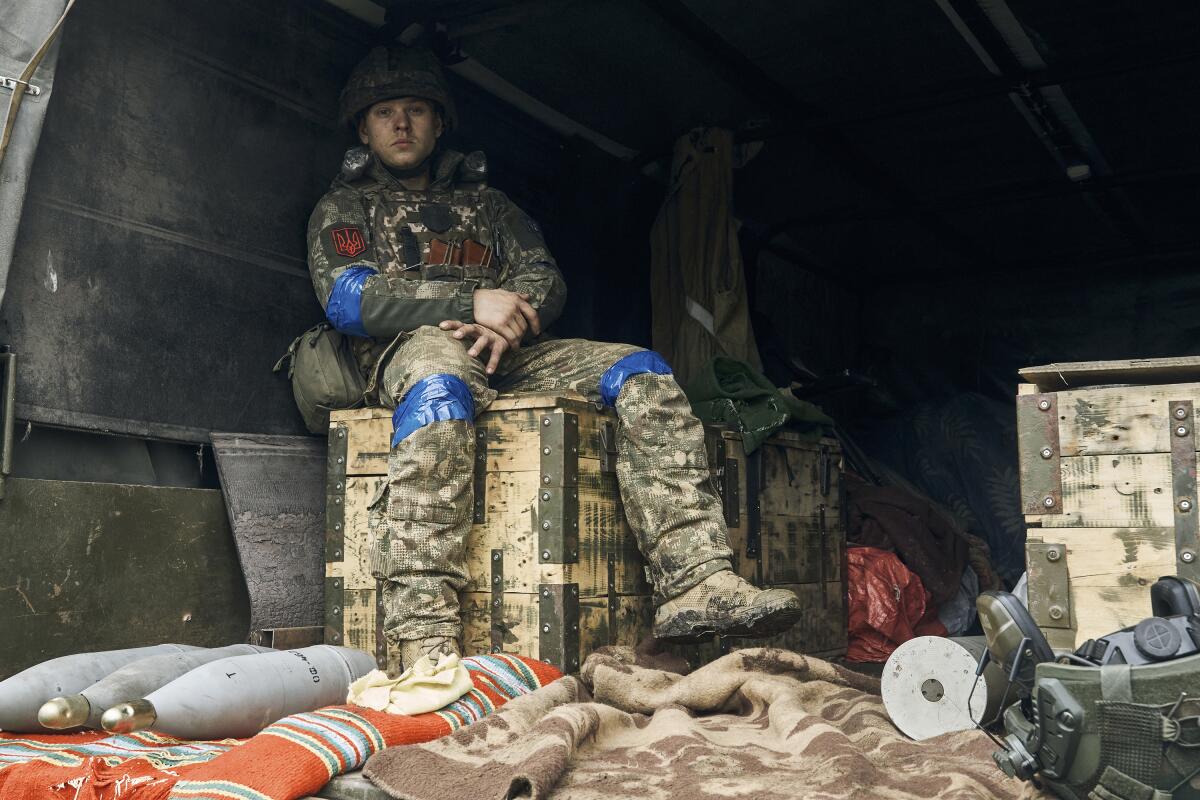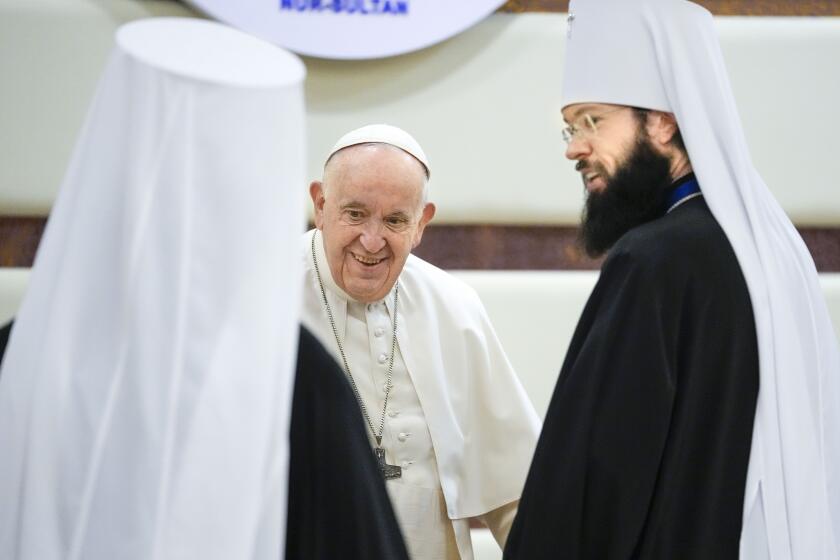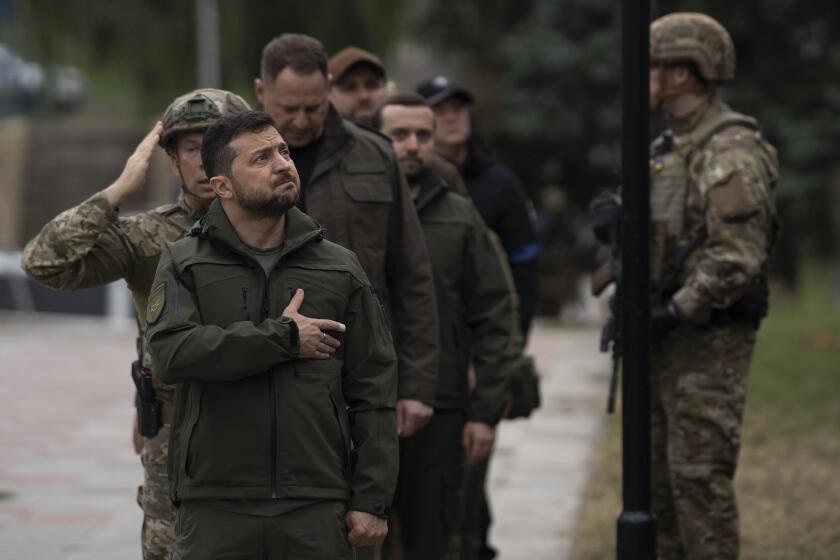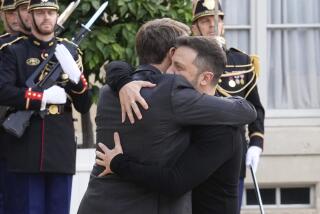Putin and Zelensky court major allies as Ukraine makes war gains over Russia

- Share via
KYIV, Ukraine — Russian President Vladimir Putin and Ukrainian President Volodymyr Zelensky are each courting major allies Thursday, seeking to prop up their efforts in a war whose fortunes have tilted toward Ukraine in recent days.
In Uzbekistan’s ancient Samarkand, Putin was hoping to break through his international isolation and further cement his ties with Chinese President Xi Jinping in a geopolitical alliance increasingly seen as a potent counterweight to Western powers.
Putin and Xi were due to meet one-on-one and discuss Ukraine, according to the Russian president’s foreign affairs advisor.
In Kyiv, Zelensky was shrugging off a traffic collision the previous night that left him with no major injuries, officials said. He met with European Commission President Ursula von der Leyen, who once more showed full commitment to Ukraine’s cause.
Von der Leyen said she would address “how to continue getting our economies and people closer while Ukraine progresses towards accession” to the European Union, which is likely still years away in even the best of circumstances.
In a sign of further EU commitment, the European Parliament completed the drawn-out political process of granting a $5-billion preferential loan to Ukraine, the key part of a $9-billion package of aid to offset the cost of the war.
Pope Francis has told the Russian Orthodox hierarchy and other faith leaders that religion must never be used to justify the ‘evil’ of war.
In Germany, the EU’s economic powerhouse, the country’s foreign minister pressed her boss, Chancellor Olaf Scholz, to decide soon to supply Ukraine with versatile tanks while the momentum on the battlefield lay with Kyiv.
Berlin has been hesitant about such moves, but Foreign Minister Annalena Baerbock said that “in the decisive phase that Ukraine currently finds itself, I also don’t believe that it’s a decision which can be delayed for long.”
While Russian forces in some areas are increasingly being pushed back toward the border, Russia is still striking from behind the front line. Ukrainian officials said Russian missiles kept hitting the dam of the reservoir close to Zelensky’s birthplace, the town of Kryvyi Rih, on Thursday, The damage flooded more than 100 homes. Efforts were underway to contain more spillage, and authorities urged citizens to take shelter as strikes continued.
The attack so close to his roots angered Zelensky, who said the strikes had no military value.
Ukraine’s sweeping counteroffensive against Russia’s invasion has reclaimed vast swaths of territory in the northeastern region of Kharkiv.
“In fact, hitting hundreds of thousands of ordinary civilians is another reason why Russia will lose,” he said in his nightly address late Wednesday.
The presidential office said that Russian shelling of seven Ukrainian regions over the last 24 hours killed at least two civilians and wounded 14.
Zelensky himself remained in a buoyant mood, saying that almost 400 settlements had been retaken in less than a week of fighting.
“It was an unprecedented movement of our warriors — Ukrainians once again managed to do what many considered impossible,” he said.
Breaking News
Get breaking news, investigations, analysis and more signature journalism from the Los Angeles Times in your inbox.
You may occasionally receive promotional content from the Los Angeles Times.
Zelensky is expected to ask for more Western military materiel, which has been essential in driving the counteroffensive, and request even harsher sanctions against Moscow as the war approaches the seven-month mark.
Despite the renewed Ukrainian vigor on the battlefield and the first rumblings of criticism at home, Putin is staying steadfast with his determination to fully subdue Ukraine, German leader Scholz said.
After a phone call with Putin earlier in the week, Scholz said that “unfortunately, I cannot tell you that the realization has grown over there by now that this was a mistake to start this war.
“There has been no indication that new attitudes are emerging there now,” he added.
More to Read
Sign up for Essential California
The most important California stories and recommendations in your inbox every morning.
You may occasionally receive promotional content from the Los Angeles Times.












